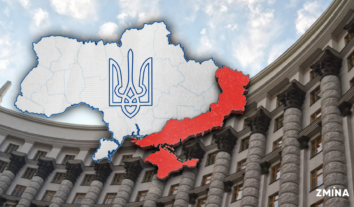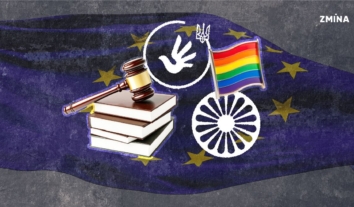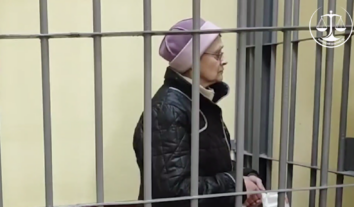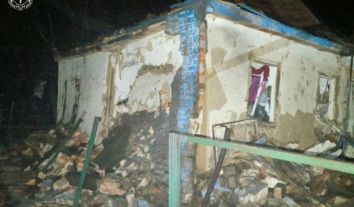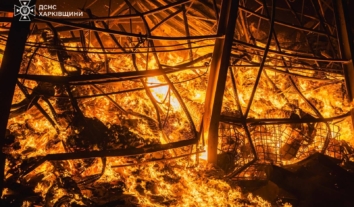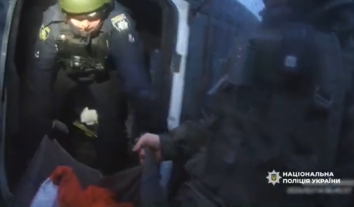Three years of combating torture: has anything changed?
The visits of the National Preventive Mechanism monitors to colonies, boarding schools and psychiatric hospitals help to change conditions in these facilities.
Ukrainian Parliament Commissioner for Human Rights Valeria Lutkovska notes that the human rights monitoring mechanism in places of restriction of liberty should have been set up much earlier than it actually happened, “In 2006, Ukraine ratified the Optional Protocol to the UN Convention against Torture and should have established the National Preventive Mechanism (NPM) pursuant to the provisions of the document already then.”
However, the appropriate mechanism was set up only in 2012 after long discussions on what it should be.
Valeria Lutkovska said that the NPM monitors had visited the places of restriction of liberty, amounting to over 6,000 in Ukraine, since then. These are not only detention centers or penitentiary institutions, but also any place where a person stays following the decision made by the court or administrative authority and cannot leave it on his or her own free will. The representatives of the non-governmental organizations, civil society monitors, who are given appropriate training in advance, are also involved in the mechanism’s visits.
“There is practically no place of deprivation of liberty that would dare not to open doors to the public representatives along with the Secretariat of the Ombudsperson. If such places appear, they are held administratively liable,” Lutkovska noted.
Representative of the Ombudsperson for the NPM implementation Yuri Belousov noted that the monitors had paid 762 visits to various facilities within three years of the National Preventive Mechanism activity. The monitors visit the institutions without prior notice. Each visit lasts 24 hours, sometimes longer, to study in detail the situation with the conditions of stay of people in the facility, food, and most importantly, the attitude of administration.
For example, the monitors visited the school of social rehabilitation, where the children, who have committed crimes below the age of responsibility, stay. The monitors found out that those schools did not have anything in common with rehabilitation and were more like prison facilities. Following the report of the Ombudsperson, four such schools were closed as their conditions had not met the standards of proper treatment.
Last year, the monitors studied the palliative care, i.e. help to the terminally ill people, who often need painkillers. Most of such medicines are narcotic, which complicated their obtaining. Yuri Belousov said that the NPM monitors’ visits contributed to adoption of appropriate legislation on purchase, transportation and storage of narcotic substances specifically in health care facilities. Until that time, the narcotic medicines were prohibited from storing in medical institutions, and hence were not promptly given to patients.
“There were such cases when the only means of pain relief were wooden sticks, which people and, particularly, children just bit,” the Ombudsperson’s representative said.
The mechanism for providing medicines to patients has been already elaborated this year, and the regional programs have been developed in Volyn, Rivne, Ivano-Frankivsk regions.
The changes in the places of restriction of liberty, which have been achieved particularly due to monitoring visits, are as follows:
- new draft amendments to the law on mental health care, which stipulate that the people who stay in the places of detention and need mental health care should receive such care in the Health Ministry institutions, not only in a psychiatric hospital of the penitentiary system;
- amendments to the Code of Civil Procedure, according to which a person, recognized as incapable by the court, shall independently apply to the court to restore his or her legal capacity (previously such application should be made by the guardian, i.e. a doctor of a psychiatric hospital or a relative, who, for example, has taken such a person to the hospital to deprive him or her of property);
- changes concerning independent appeal to the court for review of the ruling on the need for compulsory treatment;
- new building codes of installing glass boxes instead of metal cells in the courtrooms;
- changes in the Penal Execution Code regarding the transfer of prisoners to other facilities to serve sentences closer to the place of residence of their elderly relatives;
- possibility of long-term (three days) family visits for life-sentenced prisoners.
Yuri Belousov also noted that it was important to attract the attention of journalists in this work, “Experience shows that the media’s role is crucial. No public servant likes talking about him or her. Moreover, when bad things are talked about. When it is shown that this official or the subordinates torture people, it is not perceived very positively by the official. However, he or she quickly finds money and ways to reduce the suffering of the people he deals with in his institution.”
Roman Romanov, the director of the program initiative “Human rights and justice” of the International Renaissance Foundation, noted, “Human dignity and European values are very popular topics now in Ukraine. And I think it is difficult to present something closer to these two important categories than the activity of the National Preventive Mechanism. People in the mental health care institutions and other social institutions are not guilty of anything, they only need some kind of special attention from the state and society. For the decades, the main principle in our country was to remove these people away from human eyes.”
According to Roman Romanov, the places of restriction of liberty have been overseen by the prosecutor’s offices in recent years and the situation with observance of human rights is, in fact, the result of this control. Romanov notes that the community of the monitors with public involvement should grow and become self-organized.



